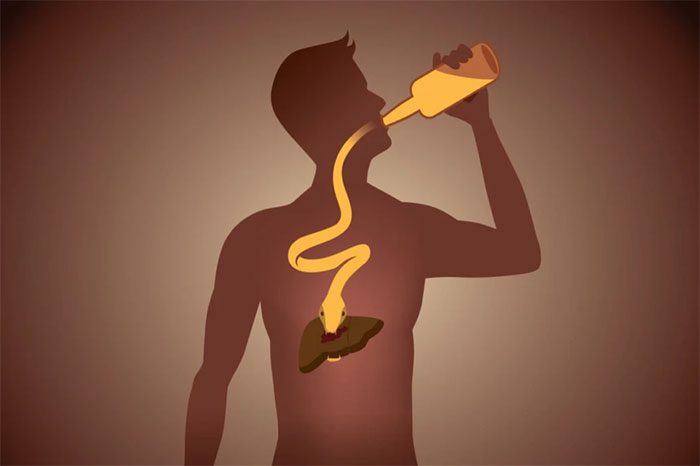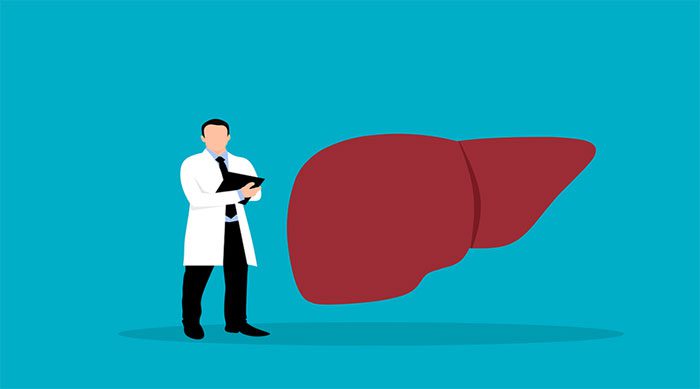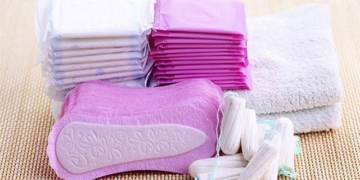The liver is the body’s central filtering system, tasked with cleansing the blood and metabolizing toxins into waste. Among all the organs in the body, your liver is the most severely affected when consuming alcohol.
Time for the Liver to Remove Alcohol Damage
The process of detoxifying the liver will eliminate toxins from the body, although there is no evidence that detoxification will remove the damage caused by excessive alcohol consumption.
1. How Does Alcohol Affect the Liver?
Your liver contains enzymes that act like special tools to metabolize (break down) various toxins that enter your body, including alcohol.
Long-term alcohol use can cause serious damage to the liver. Your liver has a specific pathway for breaking down toxins over time; if this pathway becomes overloaded with too many toxins, it can affect the liver’s efficiency.
Several health issues and diseases can arise in the liver due to long-term alcohol use, including:
– Fatty Liver Disease: Most people with fatty liver disease are asymptomatic, although the liver may be enlarged or there may be mild discomfort in the upper right abdomen.
– Cirrhosis: Although early-stage cirrhosis patients may have no symptoms, this condition tends to progress and cause significant liver damage before being detected.
Over time, patients will experience:
- Fatigue, weakness, and muscle wasting
- Increased pressure in the liver
- Fluid accumulation in the abdomen and legs
- Bleeding from esophageal varices
- Confusion, decreased concentration, and behavioral changes
- Enlarged spleen
– Alcoholic Hepatitis: This condition causes inflammation and swelling of the liver, leading to the destruction of liver cells. The severity of this hepatitis can range from mild to severe, and patients may experience jaundice, fever, nausea, vomiting, and abdominal pain. Mild forms can persist for many years, leading to further liver damage unless the patient stops drinking alcohol.
Some signs indicating liver damage include frequent allergies, malnutrition, poor appetite, fatigue, irregular digestion, skin discoloration, acid reflux, and heartburn.

Long-term alcohol consumption can lead to diseases such as fatty liver, cirrhosis, and alcoholic hepatitis. (Image: Internet).
2. Time for the Liver to Detoxify Alcohol
There is no exact time frame for the liver to detoxify alcohol. This depends on several factors such as:
- The amount of alcohol you consume.
- Your drinking frequency.
- Any other health conditions you may have.
- Age
- Weight
Several studies have been conducted on the topic: “How does abstaining from alcohol help detoxify your liver over time?” A 2021 study noted that some research indicated that abstaining from alcohol for 2 to 4 weeks for heavy drinkers helped reduce inflammation and lower elevated serum levels in the liver. This suggests that the liver may take several weeks to detoxify and recover, and individuals with impaired liver function may take weeks to months.
In summary, taking a break from drinking alcohol for a few weeks will be beneficial; the longer you can refrain from drinking, the better. If your liver has been affected long-term, doctors may recommend lifelong abstinence from alcohol for complete detoxification and recovery.
For patients with cirrhosis following severe liver damage due to alcohol, even one drink can be toxic to the liver.
|
In addition to the liver, studies have found that after you stop drinking alcohol, it can remain in your body for:
|

The time for the liver to detoxify alcohol depends on the amount of alcohol consumed, age, and health condition. (Image: Internet)
What Are the Signs the Liver is Detoxifying Alcohol?
When the liver is detoxifying, you may experience symptoms such as:
Nausea or vomiting
- Feeling anxious
- Headache
- Confusion
Insomnia
- Restlessness, irritability
- Increased heart rate
- High blood pressure
- Excessive sweating
The symptoms of liver detoxification can last up to a week, but the most pronounced symptoms occur 8 to 10 hours after drinking alcohol or on the first day after drinking.
3. How to Effectively Detoxify the Liver?
While liver detoxification has not been proven to repair liver damage, it may help you feel better and somewhat protect the liver. Here are some tips for detoxifying the liver after drinking alcohol that everyone can consider:
Drink Warm Turmeric Water
Turmeric is a great spice for detoxifying the liver. This spice helps boost enzymes that can eliminate toxins from the body. You can mix half a teaspoon of turmeric powder with a pinch of black pepper in a glass of warm water and drink it in the morning.
If you don’t have turmeric, you can also drink warm lemon water; lemons are rich in vitamin C and can protect the liver and body from oxidation. However, those with stomach issues should be cautious with this drink.
Eat Green Vegetables
Dark leafy greens such as spinach, kale, mustard greens, bitter melon, and collard greens contain cleansing compounds that help naturally detoxify the liver by removing toxins from the body.
Drink Green Tea
Green tea is rich in plant-based antioxidants that help eliminate fat accumulation in the liver and promote liver function. You should drink 2-3 cups of green tea daily to reduce the risk of fatty liver disease.

Green tea helps eliminate fat accumulation in the liver and promotes liver function. (Image: Internet).
Eat Garlic
The sulfur compounds in garlic activate liver enzymes that help eliminate toxins from the body. Moreover, garlic contains large amounts of compounds like allicin and selenium that help protect the liver from harmful damage. You can eat garlic raw by consuming it directly or adding it to sauces, or you can eat cooked garlic in suitable dishes.
Drink Coffee
According to various studies, moderate coffee consumption can protect the liver by preventing fat accumulation and reducing the risk of liver diseases. However, you should consume it in moderation and avoid adding sugar and cream.
Stop Taking Medications
Some medications can stress the liver and hinder its normal functioning. If possible, temporarily halt any unnecessary medications while you’re detoxifying your liver from alcohol, or consult your doctor about stopping any current medications.
In addition to the measures above, during the liver detox process, individuals should avoid alcohol, added sugars, and processed foods. Instead, you should build a liver-friendly diet that includes whole grains, fruits and vegetables, lean proteins, dairy, and healthy fats, along with staying hydrated. Regular exercise is also beneficial for the liver, helping to prevent fat accumulation.
Overall, the time it takes for the liver to detoxify from alcohol depends on several factors, but if you abuse alcohol, the liver may need several weeks or months to fully recover. Long-term alcohol consumption can cause permanent liver damage. Therefore, you should avoid drinking continuously for more than 2 days, and limit your intake to no more than 2 drinks per day for men or 1 drink per day for women (1 drink is approximately 29.5ml).



















































